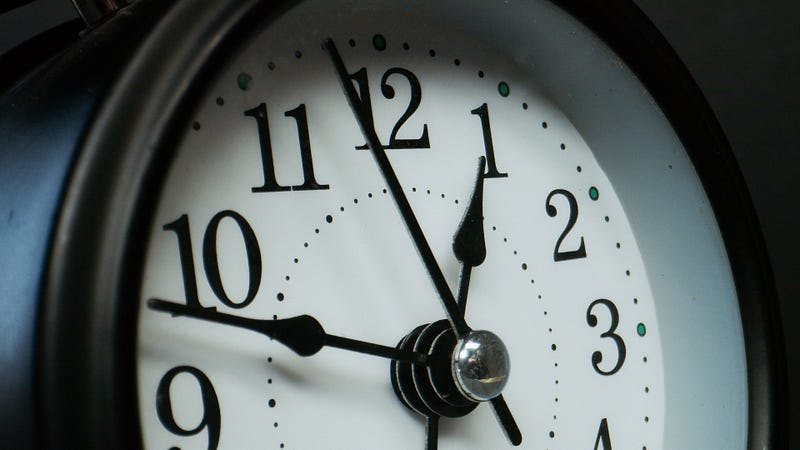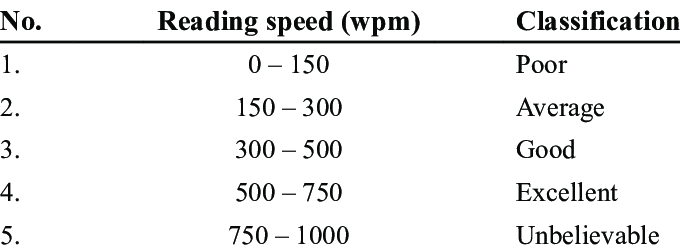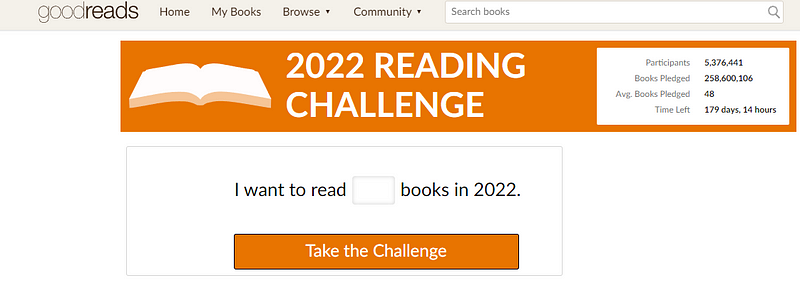How to maximize your reading speed- Slow reading vs. Fast reading
There are 3 types of readers:
Slow readers,
fast readers, and
fast readers who read slow.
Let’s start off with that first type: Slow readers.
Most inherently slow readers are dissatisfied with their reading because they can’t read at much in the same time as fast readers. While a fast reader can read a book in 4 hours, the slow reader takes 12 hours for the same book.

Therefore, the slow reader ends up reading a total of less books- when the books are reduced down to numbers, the fast reader reads a book a week and the slow reader reads a book every 3 weeks.
In my opinion, slow readers should learn to read fast. They don’t always have to read fast- if they’re reading for pleasure, it’s okay to slow down, but learn to read fast. You need to have the skill.
An argument will be made that, “Speed-reading has less memory retention!”
Fine, yes it might have less memory retention. But you don’t need to speed-read, speed-reading is another as-important skill, but this isn’t speed-reading.
Speed-reading is 1,000+ wpm. Reading fast (my definition) is around 500+ wpm.

There is an argument to be made for slow reading and how it’s better for memory retention. Yes, slow reading is probably better for retention, but if fast readers read 3x as much and slow readers retain 1.5x as much, who’s coming out with more information?
The fast readers.
If you’re a slow reader, it seems you’re feeling down or angry because you’re being told you’re at a disadvantage.
But my argument here is only for nonfiction books.
When reading fiction, the slow reader has the advantage.
There’s 2 main reasons why:
1. Suspense

In most books there’s suspense to get the reader into the book and engaged, thinking about it when they’re not reading. Some of the best fiction books I’ve ever read are books I’ve read slower than I usually do- just for the fact that I have so much adrenaline around the book.
I don’t get to the answer right away, the main villain doesn’t get uncovered right away, and that means EVERY single time I pick up the book I’m super into it, trying to figure out what’s going on.
When I put the book away I’m thinking about it, getting my mind engaged in the story and the plot, meaning when I pick it up again I’m going to have even MORE adrenaline and vigor reading the amazing piece of fiction. I’m going to have predictions that need testing, ideas that need resolving, and questions that need answering.
Since I don’t get all my questions answered fast, when I do get an answer I’m ECSTATIC and ready to continue reading the book.
I just have so much suspense and involvement into the book, it even seeps into other areas of my life when I’m not reading. I might be going for a run and I have an idea about the book- a realization that a certain character is bad or good, and when I finish my run I go IMMEDIATELY to my shelf and pick up the book wide-eyed and ready to read.
Let’s consider how I would react if I read the same book (too) fast.
First off, I wouldn’t have those ideas and realizations that got me so committed into the book because I’d finish the book in 2–4 days (sometimes I finish books in one day and then it’s even worse).
I wouldn’t have that excitement around the book because big events would be blended together.
I wouldn’t scream in delight when something happens. When I read the book slowly big, emotional events were rare. When I read the book fast I might have gotten 1–2 events per book.
I wouldn’t be thinking about the book during times when I’m not even reading the book because I wouldn’t get as much suspense from the book, I’d always have my questions answered.
I wouldn’t enjoy the book as much because I wouldn’t have to wait for anything. I wouldn’t get emotionally attached to the book.
It’s just a so much more boring reading experience.
2. Emotionless reading

When you read a fiction book a week, books don’t become special.
When you read so many fiction books,
You’ve seen every plot 1,000 times, when you see it again it just loses its value. You’ve seen every character archetype, every setting 1,000 times. Yes, there’s plot twists, but you’ve read about worse plot twists, you’ve read about worse things. Everything that makes a book special loses its value.
When you read a fiction book a week, what fiction book is unique?

Part of what makes a book enjoyable and valuable is how unique it is- after all, if a plot twist happened 20 times in a row, it wouldn’t be a twist. What made the book special would be redundant. No book becomes unique, they all blend together after a while.
You could even say the entire enjoyment from the book comes from surprises and suspense- both of which are severely limited by speed-fiction reading. You just don’t get the pleasure you would normally get.
When you set timeframes to read fiction books you stop trying to gain as much insight into the book and learn as much as possible about the characters because you’re instead thinking about the pages you have to get through.
Overall, my point is this:
Fast reading is better for nonfiction reading because you gain more information and learn more in a shorter space of time.
Slow reading is better for fiction reading because books become more unique- more special- and you get to generate suspense.
P.S. If you’d like to get better at not just reading but also writing, check out my post on writing short stories: https://havenofthereaders.com/2022/06/12/why-i-suck-at-writing-short-stories/
The main debate is over, but what about another type of readers:
Fast readers who purposely read slow?
I’ve got a friend who we’ll call R. R is actually a very fast reader, but she chooses to read slow. Theoretically, she could finish books as fast as me, but she chooses not to. She either reads
- At a slow speed (less intensity) for the same amount of time or
- Normal speed for less time.
For fast readers wondering how to read slow so they can enjoy fiction books, this is the key. R is an avid fiction reader- I haven’t ever seen her read a nonfiction book- and is able to enjoy her books.
A quote from her:
“My emotions go up and down with what’s happening in the book!”
R gets emotionally attached to her books and is able to generate ideas and predictions about her stories. This is exactly what we said happens to slow readers, and it’s a VERY good thing too.
R really gets affected by her books (I think she cries after reading some of them- out of delight or sorrow is what I don’t know) and EVERY book feels unique in some way, causing EVERY book to feel special.
For you fast readers who avidly read fiction and would like to gain more out of their fiction books, learn from R by:
- Reading slow/less…

or Reading nonfiction
If you’re already a fast reader, you’d be VERY suited to reading nonfiction.
The first reason is that you’re already capable of getting the most benefit from nonfiction reading, you’re capable of gaining so much knowledge it’d be incredible.
It’s kind of like genetics in sports. People with superior genetics can get more benefit going to the gym less.

You’ve got Chris Bumstead genetics: you can already read very fast. If you read nonfiction 30% of the time, you might be able to gain more benefit than a slow reader reading nonfiction 50% of the time.
Why not start reading nonfiction?
In video games you normally have to play for (in total) hours or even days to get the best weapon/loadout/kit/rank, but if you start reading nonfiction you’re in level 1 with a level 100 bazooka-machine-gun that shoots plasma, one-shots every entity in the game, and kills every enemy within a 1,000,000-mile radius.
Simply put, you don’t have to take the time to learn how to read fast- you already can. You’ve just downloaded the game and you’re already at level 200.
P.S. If you’d like to read more this summer, check out https://havenofthereaders.com/2022/07/05/4-4-of-the-best-ways-to-incorporate-a-summer-reading-challenge/

Reading nonfiction to gain more out of fiction
As I wrote in this article on my website (havenofthereaders.com, as of right now there’s 20+ articles for you to read on my blog-check them out), nonfiction reading is great for you.
In a specific section of that article it talks about appreciating fiction.
A while ago, I was stuck in a reading rut.
Every fiction book I read felt boring, I wasn’t getting emotionally attached at all. I was feeling down because every book just blended together. I was reading really fast but I was VERY proud of my reading speed so there’s no way I’d ever stop reading fast!
Then some advice came in from a friend, “Just read some nonfiction. It’ll make you appreciate fiction.”
What was this guy saying? No way I’d ever read nonfiction.
I finished another series in 2 weeks- without ANY pleasure from any of the books in the series.
Maybe that advice had some truth.
I started reading We Die Alone- the story of Jan Baalsrud. If you’d like to see my recommendation of it scroll down on this page.
I read a couple more nonfiction books. When I came back to ONE fiction book, I experienced levels of involvement I had never experienced before.
Keep in mind that I was still reading at my prideful extremely fast reading speed. I was involved, I was into the book. I was appreciating fiction.

When I came back to fiction, the difference in dopamine was crazy. I was being hit in the face with plot twists I wasn’t used to anymore!
If you want to continue reading fast but fiction just doesn’t feel the same as it used to or if you’re a fast reader wanting to get more out of fiction,
It’s that simple. Just read 4 nonfiction books (and don’t read them all in a week) and come back to fiction books.
You’ll be SHOCKED at how amazing fiction feels.
Better still, you might uncover something special in nonfiction like I did which led to me becoming OBSESSED with self-help nonfiction books (and really any nonfiction books at all) so you’re learning while having immense amounts of fun.
If you’d like to learn why nonfiction books are so great, here are two articles I’ve created:
- https://havenofthereaders.com/2022/06/14/full-how-nonfiction-books-change-your-life/
- https://havenofthereaders.com/2022/02/12/balancing-your-reading/

Speed-reading
These days, speed-reading is heavily controversial. Some people say stuff like, “Well speed-reading is offensive to slow readers!”-
Why would you even say that? I just feel like cancel culture has become so idiotic these days. What’s next?
“Having eyes is offensive to blind people! Remove your eyes.”
“Drinking water is offensive to people who die of thirst. Stop drinking water. It’s a choice.”
“Eating food is offensive to picky eaters and skinny people. Just stop eating food.”
“You’re living? Wake up, it’s 2022, that’s offensive to people who died.”
At this point talking and standing up are going to have to be cancelled!-
Anyways, speed-reading is a completely separate thing from reading fast. I’m not going to cover speed-reading too much here because there’s LOTS of content about speed-reading ranging from “Why speed-reading is BS” to “Scientific Speed Reading: How to Read 300% Faster in 20 Minutes”
It’s just such a wide topic. If you want to learn how to speed-read, this isn’t the place- go on medium.com and search “Speed reading” (my medium) and you’ll find enough articles to last a lifetime.
Overall/ Key Points
Slow reading is good for fiction.
Fast reading is good for nonfiction.
If you’re a fast reader, you can read slow to gain more out of fiction OR
you can start reading nonfiction because:
- You can already read fast
- You’ll gain more appreciation for fiction
Nonfiction reading is amazing.
Thank you so much for reading this article. Do you want to miss out on ALL of these benefits and NOT get full, exclusive access to all of Haven of the Readers? Probably “NO!” right? If you don’t want to miss out, subscribe with the link at the end of this post.
P.S. If you’re reading this on Medium or Blogger, why not check out my website havenofthereaders.com?


Comments
Post a Comment